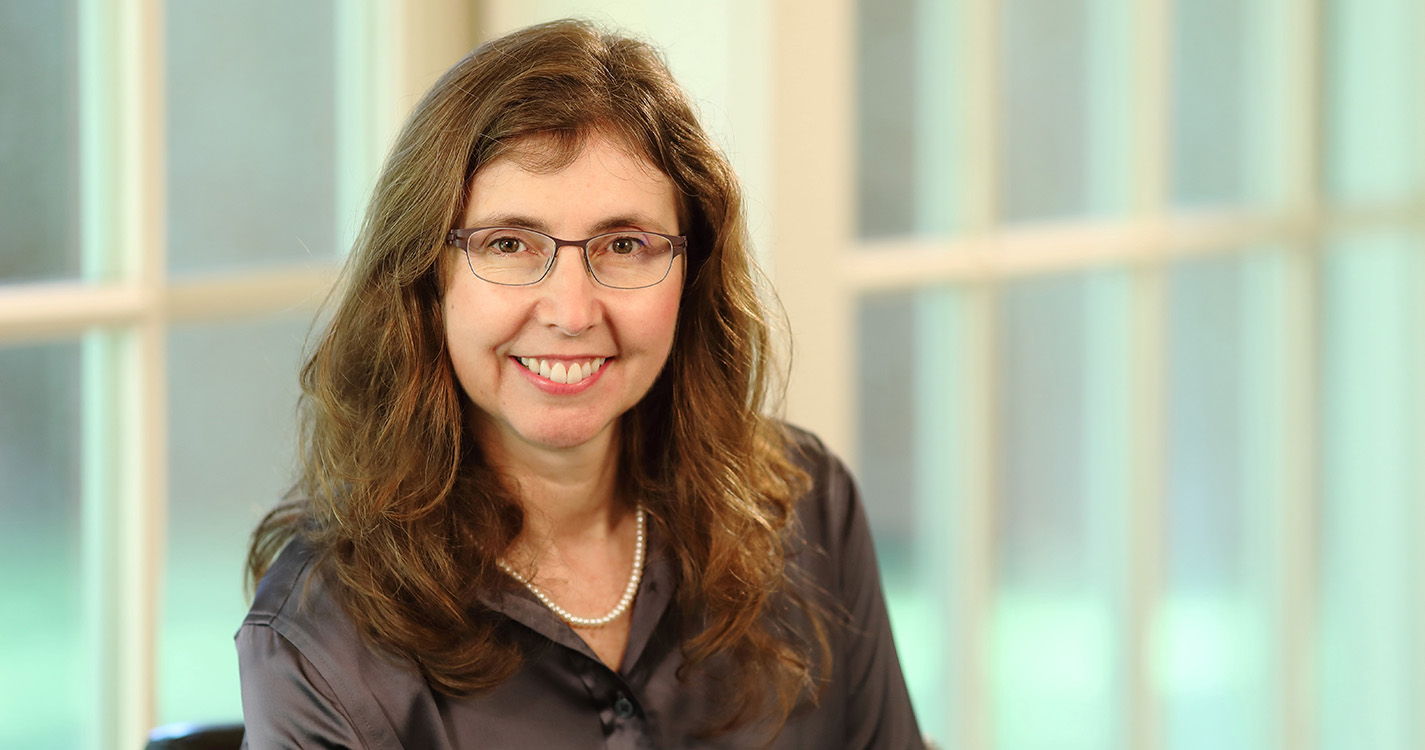Choosing a math degree was the best career decision Marie Morel-Seytoux ’90 made at Willamette, but it almost didn’t happen.
Years before the STEM curriculum became commonplace in schools, Morel-Seytoux was a student who enjoyed math but didn’t think it could be useful for a career. Today, as a vice president at FICO, a leading data analytics software company, she finds it particularly funny that she ever felt that way.
Morel-Seytoux’s current role includes overseeing FICO Score Open Access, a program that helps more than 250 million consumers understand and access their credit scores, an effort former President Barack Obama praised in 2014. She’s spent the majority of her career at FICO, where she’s known for her analytic development, consulting, program management and operational leadership.
“When I was a student, I was one of those people who would ask, ‘What do you do with a math major?’” she said. “Now I feel the complete opposite — it really opens up career opportunities because it’s such a great foundation for other technical fields.”
Unexpected influence
Morel-Seytoux began her academic career at a large public university in California but Willamette’s academic rigor and small class sizes appealed to her so much, she transferred for her second year.
Math as a major didn’t occur to her because she was more interested in psychology, sociology and computer science. But she continued enrolling in multiple classes and spent one semester with Teresa Farnum, a visiting math professor, who unexpectedly influenced her life. Farnum was the only female math instructor at Willamette in a male-dominated field.
“Professor Farnum showed me how a woman could be a successful intelligent professional without hiding her feminine side,” she said.
Campus clubs introduced Morel-Seytoux to the broader community. She helped build a house with the Community Action Group and brought speakers to campus through an education committee. As a math tutor through the Office of Multicultural Affairs, she worked with underrepresented and nontraditional students for a year.
Tutoring instilled in her a lasting value for diversity. In 1991, she joined Volunteers in Service to America, helping Native Americans acclimate to life off the reservation by helping them prepare for their GED test. She’s currently part of Advancing Women Executives, a training development company that creates equity and economic growth for women at the workplace.
At FICO, when she builds teams or hires new employees, she intentionally seeks people with varied backgrounds.
“I think you can be a stronger team together when you hire diverse talents and perspectives,” she said. “Willamette helped shape that belief.”
A degree that lasts
Morel-Seytoux’s major had an immediate impact on her career.
Her degree led to an MS degree in operations research at Stanford University and directly applied to her first job at FICO in California as a data scientist. Initially, she worked on custom predictive model development and analyses for financial institutions. From there she rose through the ranks and led the Custom Credit Bureau Analytics team until 2001, when she decided to take time off to start a family.
For the next several years, she took a professional detour. She taught math part time at Contra Costa College, a community college in San Pablo, California, then “got the entrepreneurial bug,” moved back to Oregon and became president and owner of The Little Gym of Lake Oswego, a children’s fitness facility that dovetailed her interest in teaching and her passion for health and fitness.
In 2009, Morel-Seytoux returned to the financial world. Owning a small business developed her strategic thinking skills, and she quickly rose from analyst to vice president at a mortgage servicing company in Beaverton. Three years later, she rejoined FICO as principal consultant. She has been a vice president since 2017 and loves the job.
“At FICO, the people — just like our products — are incredibly analytic,” she said. “The culture is part of what I like. We look at all the different scenarios and the data to drive the decisions we’re making. There’s also a lot of collaboration and it’s collegial, which can be lost at a lot of corporations.”
Her technical skills are essential for her industry, but the communication and collaboration skills she learned at Willamette have been important as she’s grown in her career — they likely helped her land her first job, she said. But more than anything, the qualities are a useful complement to her degree.
“I moved into the business and management side, but having a background and understanding in math still brings value to my work now,” she said. “The degree has a very direct relationship to my current career.”

